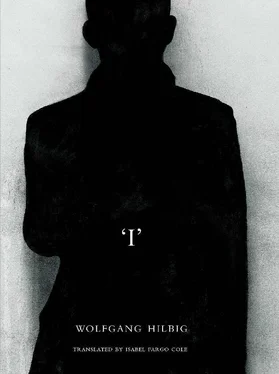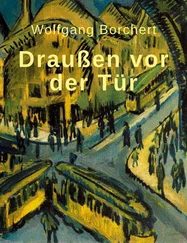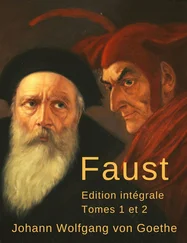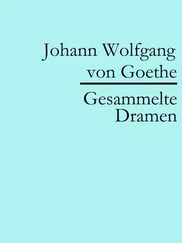W. had wanted to ascertain how well his table could be seen from the pavement: the empty table stood off to the side, the tabletop, already cleared, now bore a plastic sign that said Reserved . . and the waiter came and yanked the opaque curtain to the middle of the window; the table vanished. But W. had seen himself still sitting on his chair right next to the windowpane, not very clear, lost in thought as usual, holding the teaspoon motionless in the cup, staring out at the street, at an indistinct patch of fog somewhere on Frankfurter Allee, looking straight through his likeness on the pavement. . and the person at the table didn’t notice that he’d been scrutinized for half a second from outside: W. remained invisible to the other man within. .)
As for the new things that were supposed to flutter from his desk, there really wasn’t much to speak of. . there was simply nothing going on in the Scene, even if more and more often someone would act as though an entirely new light had been shed on the situation. In the manner of the ironist who stands above it all, Feuerbach played down the uneasy feeling that must have occasionally come over him. There were any number of roaring lions afoot in the worlds west and east of the so-called Iron Curtain, he said, and each believed himself personally responsible for a certain rethinking which was suddenly writ large. . But have you heard a thing about us here getting any instructions to rethink? he asked. — One reason for this mood, at least one of the discernible reasons, seemed to lie in the emergence of an array of new poets who previously had become known only in the West, through their illegal publications, whereby illegal was a flattering term people liked to use. Mostly these were magazine publications, but there had been standalone books with West German publishers as well — also illegal, if not more than illegal — and what they all had in common was the note in the obligatory author biography, worded almost exactly the same way each time, that they belonged to a young generation of poets that had to be termed oppositional because so far they had been unable to publish in their own country. But now, more or less surprisingly, domestic publishers and magazines began printing these poets’ work as well. Suddenly anthologies appeared in the bookshops — completely unannounced, and clearly put together in hectic haste, chapbooks that sold out in no time and immediately acquired a certain scarcity value — anthologies or slender books bringing together two or three new authors, and they created the impression that all these incriminated poets were a perfectly natural presence in their country. . this, one learnt, had been preceded by protracted disputes within the highest cultural department. — And W.’s name had also appeared amid these writers’ ranks.
Feuerbach’s reaction was practically euphoric; for several weeks that autumn, whenever he ran into W. he produced the centrespread of a newspaper from his pocket — the culture section, which included book reviews — and unfolded it on the cafe table. In each of these spreads W. was included in the list of names to note when reappraising contemporary poetry. And inevitably the West German media followed suit: here too his name was rarely lacking, which the first lieutenant found especially remarkable. — At first his excitement infected W. as well, until he began to feel that his case officer was acting as though he’d written the pieces himself. . and from then on W. reacted guardedly, sometimes almost dismissing the whole thing: Were the pieces really by him? Even if it was true that his hand had put them to paper, they had been authorized by someone other than him. And then it struck him that all the reviews he was shown were almost identical in content; here the term was truer still: they had been authorized! And in the end even Western newspapers used the same set phrases, the same interpretations, often enough the same sentences. . What a brilliantly functional national culture! Clearly it wasn’t even necessary for one person to whisper in the other’s ear, no one had to crib a thing from the fellow before him, this sort of thing happened so completely spontaneously, you had to admire it. Little by little W. was finding this to be a crushing process. . and he realized that by now he didn’t even know how these pieces had gotten published. Whenever he’d submitted work, he’d always got all of it sent back. After that he’d made fewer and fewer efforts. . before what he declared to himself to be his last attempt — his very last attempt before the point at which he’d ask Feuerbach for assistance — in exasperation he had cut three of his pieces down the middle and put them back together the other way around; he’d resubmitted them, and suddenly they were accepted. And right after that more of his work had been published in two so-called unofficial magazines, albeit with what W. regarded as the correct line sequence.
Feuerbach had heard about all the publications quickly, almost immediately, and he delighted unabashedly in all of them. He made one of his extremely rare pronouncements: I’ve got to admire you!
You had just the right instincts! he went on. We disapprove of it, but it’s the right word here: instincts! You appeared officially and unofficially at the same time, and that’s acting like an old pro. I can see that pretty soon I’ll have to go and fetch myself some kudos for you. By the way, your poems were distributed just right, too. Keep it up, definitely just send the official organs your second-rate things, keep the better ones for the underground magazines. That’s the order that makes more sense for us.
W. could recall having heard something of the kind before. . the same proposal had been made — it was so long ago you could hardly call it real any more — by the boss in A. When W. mentioned that to Feuerbach, the reply was: What, him? Then he can only have got it from us.
At about the same time W. notched up an additional triumph. Feuerbach informed him that his code name had been accepted. — Did you even remember it, he asked, didn’t you pick it out yourself way back when? And be careful with this name, no one knows this name besides you. If it ever crops up somewhere, the only person to blame will be you. Remember, many things can be guessed, but not known . And there will never be any proof if you don’t expose yourself. Even so-called evidence needn’t be proof, because. . we might have just faked it all, you see! — We might well have, at least in our little part of the world. . Names, poems, reviews, even unofficial magazines, W. commented, and Feuerbach pulled a sour face.
I meant the written part of the world, the first lieutenant continued his thoughts the next day (as he often did, strengthening W.’s conviction that time was immaterial for people in the Firm). At least in the so-called world of signs. And for the poet that’s the real world, isn’t it? And for him reality’s but a demented dream, isn’t that so?
Not just for the poet, of course, but for us too, more often than you’d think, he said (once again with several days’ delay). There you’ve got the commonality you keep mulling over. Especially when we have to fulfil other people’s dreams. With Biermann6 and his buddies gone, the world’s become a demented dream even for us. We are the perpetuators of the system, and what kind of system is it if it no longer has an opposition? What to wield all the power on, I ask you. It ends up finishing us off, I tell you. Do you think it’s any fun having to build up a new opposition over and over again? New so-called hostile-negative forces, just to perpetuate the system? Sometimes I don’t see any hostile-negative forces left at all, at least not in our bailiwick, but the fossils up at the top want to keep seeing them, otherwise their world view goes down the tubes. For ages all we’ve had is an empty phrase: Hostile-negative! But in reality. . where, I ask you, where. We’re living in a world of signs, my friend, is that a commonality or isn’t it?
Читать дальше












